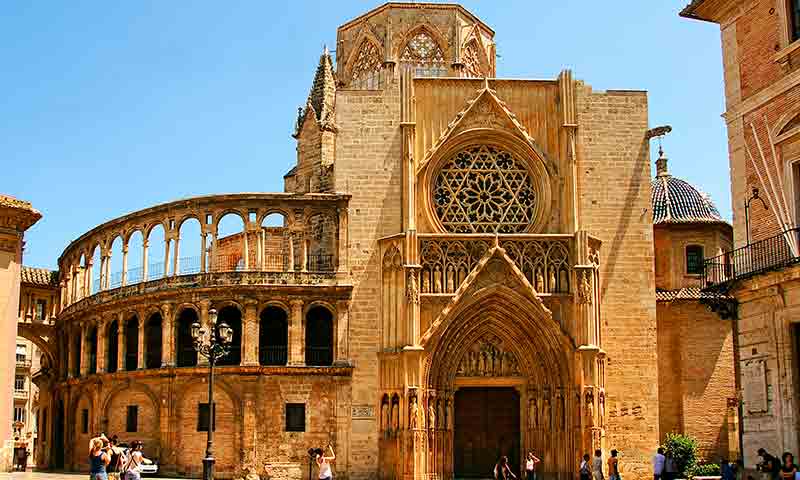¿Quieres oficializar tus conocimientos de español y obtener un título con reconocimiento internacional? SIELE y DELE son las dos certificaciones oficiales del grado de competencia y dominio del español.
Ambas están reconocidas por el Instituto Cervantes, que es la institución encargada de difundir la lengua y la cultura españolas en el extranjero.

Estos títulos pueden abrirte muchas puertas profesionales o personales si quieres mejorar tu currículum, buscar un trabajo internacional, estudiar en una universidad española o fijar tu residencia en España. Pero, ¿en qué se diferencian? ¿Cuál te interesa más?
EXAMEN DELE
El DELE (Diploma de Español como Lengua Extranjera) es un título del Ministerio de Educación de España que, a través de un examen del Instituto Cervantes, reconoce un nivel de español del A1 al C2.
Tiene vigencia indefinida, reconocimiento internacional en sistemas educativos reglados y se realiza en centros oficiales mediante convocatorias internacionales con fechas definidas.

Examen SIELE
El certificado SIELE (Servicio Internacional de Evaluación de la Lengua Español) es una acreditación de conocimientos de español promovida por distintas entidades (Instituto Cervantes, Universidad Nacional Autónoma de México (UNAM), Universidad de Salamanca (USAL) y Universidad de Buenos Aires (UBA)) de varios países.
Con una vigencia de cinco años, el SIELE tiene reconocimiento por la mayoría de los centros profesionales y universidades de España y Latinoamérica, y puede realizarse en a través de centros examinadores tanto de manera presencial como online.
Principales diferencias entre DELE y SIELE
La principal diferencia entre DELE y SIELE es su validez: el diploma DELE reconoce tus competencias en español de manera indefinida, mientras que el certificado SIELE tiene una validez de 5 años.
Por otra parte, el DELE es un diploma de dominio del español en un nivel del MCER (A1-C2), mientras que el SIELE es un certificado de conocimiento de español sobre una escala de puntos con equivalencias a los niveles del MCER (A1-C1).
Estructura del examen
Respecto al tipo de pruebas, son prácticamente las mismas (Comprensión de lectura, Comprensión auditiva, Expresión e interacción escritas y Expresión e interacción orales).
Sin embargo, si te examinas del DELE, todas obligatorias, pero en el SIELE puedes optar por el examen «completo» o «parcial» (solo te examinarás de las partes que quieras).
Respecto a los niveles, el DELE tiene seis exámenes para público adulto (A1- C2) y dos exámenes escolares (A1-A2/B1).
El SIELE tiene un único examen para público adulto en el que se integran tareas desde el A1 hasta el C1.
Sistema de puntuación
La calificación de DELE y SIELE también es diferente.
Para obtener el diploma DELE, tendrás que aprobar todas las partes y conseguir un resultado Apto sobre el dominio del nivel del que te examines.
Si haces el examen SIELE, tendrás un certificado de nivel (si haces el examen completo) o un informe (si haces únicamente una parte) en una escala de mil puntos y con equivalencia a los niveles del MCER. Es decir, que el SIELE no se aprueba ni se suspenda, sino que siempre obtendrás una puntuación
¿Cuál te interesa más?
Depende de tus circunstancias personales.
Tanto DELE como SIELE son exámenes oficiales y con validez internacional, pero sus mecánicas de evaluación son diferentes.
En líneas generales, el SIELE se considera es más ágil y dinámico, tanto por el tipo de competencias que se evalúan como por la manera de hacerlo y sus posibilidades de adaptación a cada alumno.
De hecho, podrás elegir el día que te viene mejor hacer el examen SIELE, e incluso elegir qué competencias quieres evaluar. El examen DELE tiene unas fechas determinadas, puedes consultarlas aquí.
Según nuestra experiencia, si lo que quieres/necesitas es obtener es un certificado de nivel rápido para acceder a la universidad, hacer un máster o saber en qué aspectos del idioma español debes mejorar en el futuro, te recomendamos que te presentes al SIELE.
También te recomendamos presentarte al SIELE si quieres examinarte poco a poco para alcanzar un nivel global completo o para mejorar únicamente las destrezas del idioma que más te interesen.

Preparación para los exámenes DELE Y SIELE
En la escuela de español Taronja te damos la posibilidad de matricularte en nuestras clases privadas preparación a los exámenes oficiales DELE y SIELE (tanto presenciales como online).
Podemos organizar tu examen SIELE con 48 horas de antelación. Desde nuestra escuela te explicaremos todos los detalles, y te ayudaremos con todos los aspectos técnicos. También puedes hacer el examen SIELE online, desde tu casa.
Pídenos más información sin compromiso.










